By Amy Wood, Contributing Writer
When I was pregnant with my oldest son, I walked out on the doctor who was providing my prenatal care when I realized that he was not willing to respect my decisions as to how my care would be handled. I had finally mustered up enough courage to ask him about something that had been on my mind for quite awhile — induction of labor, the “standard of care” for a high-risk mother in my situation, yet something that I did not want to do unless there was an actual problem occurring at the time.
I knew that having type 1 diabetes made my pregnancy high-risk, but I didn’t think my situation was incompatible with a natural birth (beginning with a spontaneous onset of labor) and I wasn’t ready to give up my plans before any complications even arose.
Along with telling me that I would have to be in induced at 37-38 weeks, the doctor listed off many other “routine” things I wasn’t comfortable with unless absolutely medically necessary, and also some things that didn’t seem appropriate in any situation (my baby couldn’t room in with me even if he was completely healthy and stable, but would have to stay in the nursery for the first 24 hours simply because I have diabetes?!). I didn’t think this was evidence-based high-risk care.
I knew I could not continue to see this doctor, but I didn’t know what to do instead. I’ve always struggled with insecurity and wasn’t sure if I would be able to advocate for myself and I even started to second guess myself — maybe I should just trust the doctors or maybe I was overreacting in the first place.
Understanding High-Risk Pregnancy
Having a high-risk pregnancy simply means that you or your baby have an increased risk of experiencing health problems. There are many different high-risk situations.
Some mothers, like me, have a chronic condition which they live with and manage well, but which makes any pregnancy high-risk. Other mothers are considered high-risk because they are over the age of 35, have had several miscarriages, or have had problems arise in a previous pregnancy. Some mothers are surprised to learn of a high-risk condition in the midst of a seemingly normal pregnancy — such as carrying multiples, a baby that is found to have a genetic abnormality, or developing preeclampsia.
Regardless of what your high-risk situation is, you deserve to be treated respectfully and as an individual. You deserve to have a say in your own care as you collaborate with your doctor to determine what is best. Just because you are in the same situation as someone else does not mean that your care should be the same as theirs because no two situations are exactly alike. Your care should be personalized, not standardized.
Depending on your situation you may need to accept certain interventions that you would rather avoid, but wherever your situation leads you, you can advocate for yourself and your baby to ensure that you receive evidence-based high-risk care.
Five Ways to Advocate for Evidence-Based High-Risk Care
#1: Become an Expert on Your Situation
The most important thing that you can do to advocate for yourself is to have a proper understanding of your situation- this helps you know what to advocate for. When you have a thorough understanding of your situation you can be confident in your decisions about how your care will be handled, and you will have evidence to back that up that you can physically hand to your care providers and ask them to discuss it with you if they are not in agreement.
Read about it, look up studies, and determine what is evidence-based care for you and your baby in your unique situation. I previously shared how I did this for my situation and how I found out that the “standard of care” that doctors had waved in my face implying that to do anything differently than this would surely be dangerous or at best, unwise, was not actually evidence-based care for my situation.
This is so important that I am going to repeat it — the “standard of care” for your situation may not reflect what is actually evidence-based care and may not even be what the American College of Obstetricians and Gynecologists (ACOG) recommends.
I had been told by every doctor, and even people who weren’t doctors, that I would have to be induced because I was diabetic. I was told that this was the standard of care because it was what was best for the mother and the baby.
But when I looked into it for myself I found out that these people, yes even these doctors, were wrong. I learned, by reading the ACOG practice guidelines (the guidelines that these doctors should actually be following!), that early induction may be indicated for some mothers, but that those with good blood sugar control and no other complicating factors could continue on to their due dates without induction.
I also discovered a more recent study which concluded that mothers with diabetes could safely continue their pregnancies even beyond 40 weeks gestation as long as fetal monitoring was reassuring.
#2: Be Confident, Realistic, and Flexible- Without Allowing Anyone to Push You Around.
I realized from the beginning that I may need to be induced if certain complications arose near the end of my pregnancy or that it might be the wise thing to do if I was not able to keep my blood sugar under control. I did not want to be induced, but I had to accept these possibilities. I had to be willing to be flexible depending on how my pregnancy progressed. I continued to do what I knew to be best in terms of avoiding complications- in my case this mostly involved keeping my blood sugar well regulated- yet I knew some things would be outside of my own control.
Make sure your care provider knows that you are willing to consent to further testing, other procedures, and accept interventions *should they become necessary* based on your individual situation.
Unfortunately, when you desire to do things differently than the accepted norm you can often be viewed as a mom who doesn’t really understand anything and is just trying to follow some ridiculous fad and you may not be taken seriously.
A flexible attitude paired with the education mentioned previously shows that this certainly isn’t the case- you are simply a mom who wants what is best for herself and her baby, you know what that is, you aren’t afraid to demand it when the care you are offered doesn’t line up with what is actually appropriate, AND you are willing to do what is truly best for you and your baby even if it isn’t what you would prefer, when the situation calls for it. You understand that your situation is not the same as a low-risk pregnancy, but you still want evidence-based high-risk care.
I made this flexibility clear to my doctor, but in this case it didn’t make any difference and he continued to tell me that I would have to be induced regardless of my condition or the baby’s condition. This is when I left his practice and in another courageous step for me, I reached out in an online group and through a series of events was connected with another doctor who came highly recommended by several midwives whom I had spoken with.
I was already over halfway through my pregnancy and needed to move quickly, but I was beyond discouraged because it seemed like I was having no success, even while advocating for myself. I wasn’t sure how to continue so I just did the one thing I could think of at the time- I grabbed my mother in law and took her with me to the appointment.
#3: Take Someone With You for Support.
We tend to feel more confident when we know that there is someone on our side, so use this to your advantage during your pregnancy (and birth too!). Take your husband, partner, family member, or friend with you to your appointments, if needed.
Sometimes it’s hard to speak up for yourself to a medical professional because we are often conditioned to see them as the ultimate authority, and while they can be a great resource, they should not be trusted blindly.
Most doctors aren’t malicious or uncaring in their intent, but some may simply be working on outdated information or doing things the way they have seen them be done in the past regardless of if that is actually the best (or only) way. Some doctors standardize their care rather than personalize it, this too is not appropriate. You will likely feel more confident to share your thoughts and be firm in what you have found to be the best course of action when you have a friend there to support you and perhaps even remind you of all that you need to say.
I was extremely nervous to go to the appointment I had set up with a different doctor but since I didn’t have to face it alone I was able to discuss everything I needed to with this doctor and found that he was respectful, kind, willing to personalize my care, and did not treat me like an inferior, but as if we were partners in figuring out how to move forward with my care each step of the way. I immediately decided to continue seeing him for my prenatal care.
#4: Don’t Be Afraid to Switch Care Providers- Even Late in Pregnancy.
It’s crucial to have a respectful, trustworthy care provider who you feel comfortable with. I’ve written about how to find a naturally minded care provider previously and shared in more detail how I did this during my first pregnancy. The first doctor you meet with may not be the best fit for you. The doctor who all of your friends loved may not be the right one for your situation. You may have to go through several doctors before you find one who you feel comfortable with, but it is worth all of the time and trouble to find the right care provider.
I know how I want to do things, and my doctor respects my wishes, yet at the same time we have a relationship built on trust so I know that if he ever felt that something I was doing would put me or my baby in serious danger or that there was something I needed to do that I usually prefer not to, he would honestly tell me and I would listen to him and follow his advice. If you don’t have this kind of relationship with your doctor don’t be afraid to find a different one, even if you are farther along in your pregnancy.
#5: Be Persistent and Seek a Second Opinion When Needed.
This is similar to being willing to switch care providers, but can also apply to the care provider you have chosen who is a good fit for you. You’ve become an expert on your situation, you are confident in what is best for your individual circumstances, and you have support from family or friends- now be persistent about these things!
If you don’t see the evidence behind a certain procedure or intervention that your doctor is offering, respectfully decline it. If your doctors persists in encouraging a certain course of action without being able to prove why it is needed, continue to decline- and seek a second opinion if needed. Ask another doctor. Seek a third opinion if you find yourself in that situation.
This also goes the other way- in my case I was constantly declining procedures and interventions because they did not seem to be necessary and I wasn’t comfortable with them, but some mothers find themselves in the opposite situation where they feel there is an issue that is not being given the attention it needs. Here also, be persistent in your concerns and seek a second (or third) opinion, if needed.
Whether your care provider is being unnecessarily interventive or not paying enough attention to something you are concerned about, you’re the only one who can stand up for yourself and you’re the one who is the most invested in your pregnancy and your baby.
The Outcome of Advocacy
Unlike the first few doctors I saw, who told me in no uncertain terms that I would be induced, the doctor I ended up with listened to my concerns with inducing labor early, understood why I wished to wait for labor to begin spontaneously, and although he was required to offer induction to me he respected my decision to decline induction and wait for labor to begin on its own.
I had a perfectly normal, uncomplicated pregnancy, my blood sugar was well controlled throughout, and my son arrived after a 5 ½ hour spontaneous, natural labor two days before his expected due date. My doctor was there for the birth and I can’t even explain how amazing and empowering it felt to give birth naturally, supported by my husband, doula, and doctor, after advocating for this very thing for the many months leading up to this day.
Advocating for myself, rather than blindly following doctors orders, brought about this beautiful moment and made this possible. Your pregnancy and birth may turn out differently than mine due to differing circumstances, but you will never regret taking the time to advocate for yourself and your baby to ensure that you receive evidence-based high-risk care- and doing so may make all the difference in your birth!

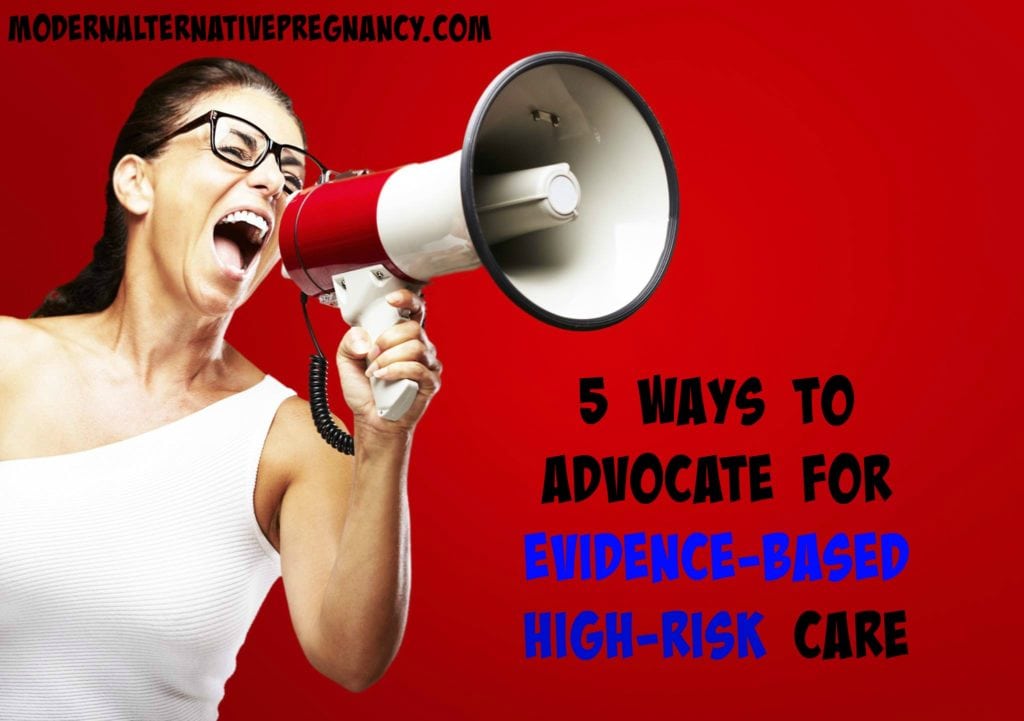
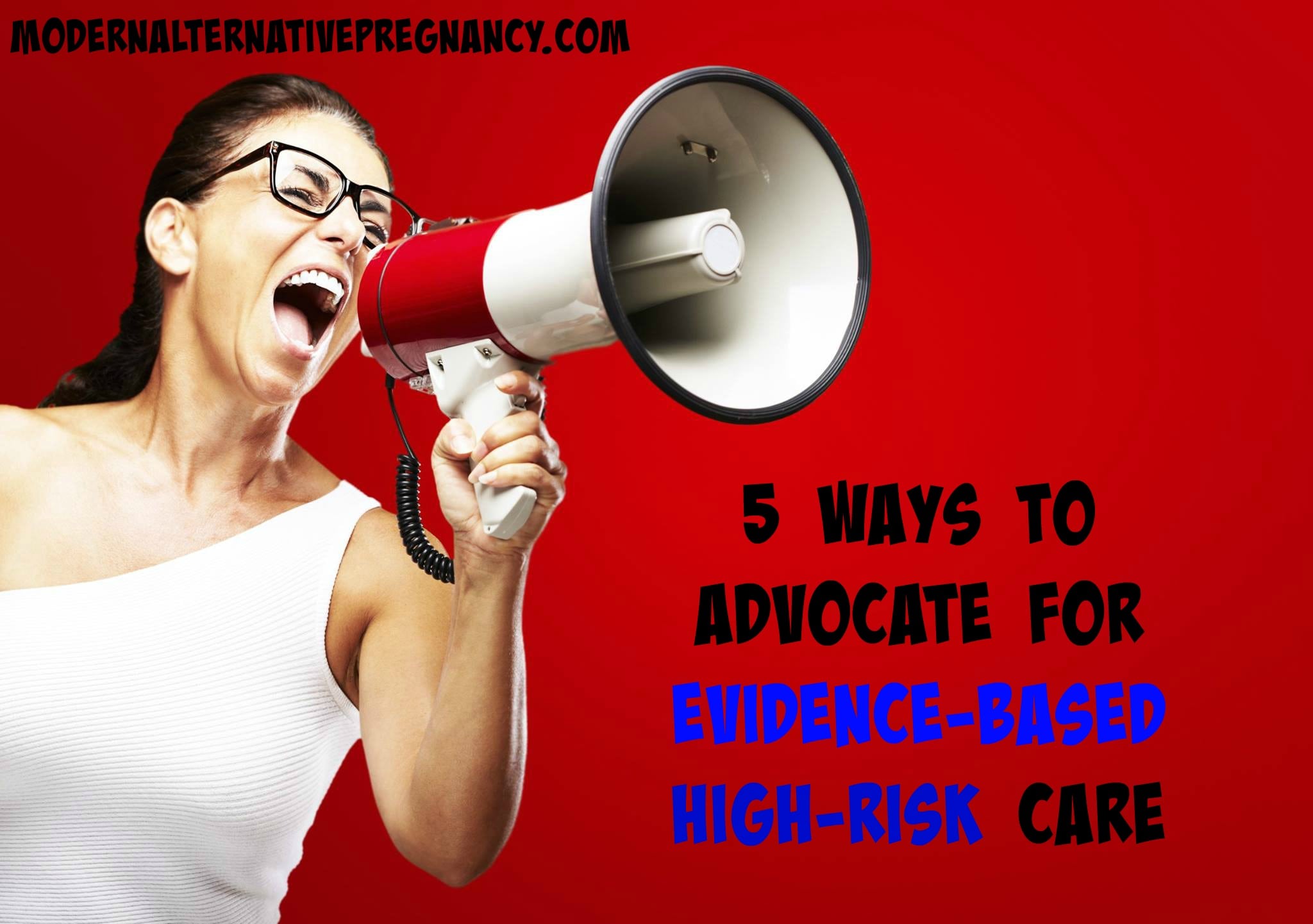
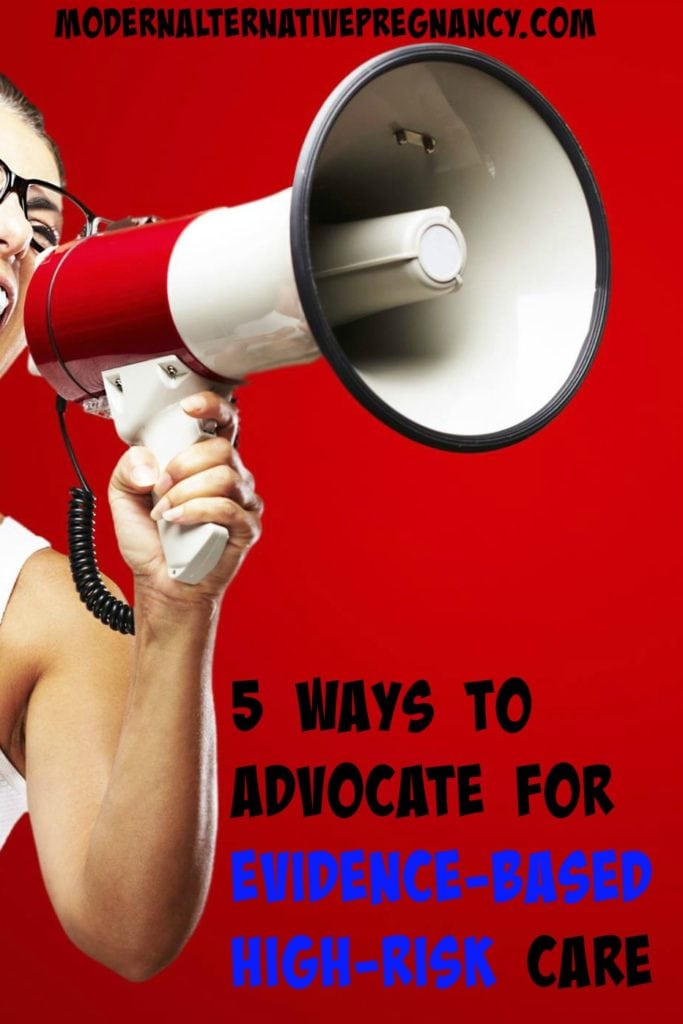
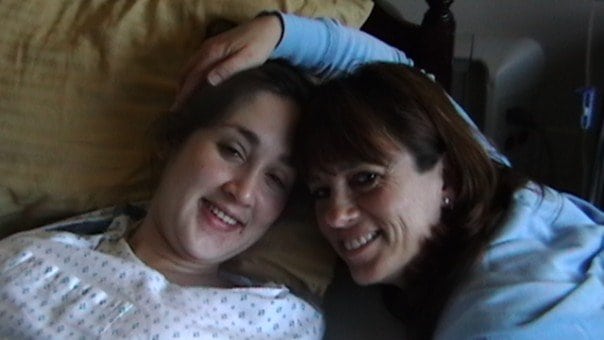

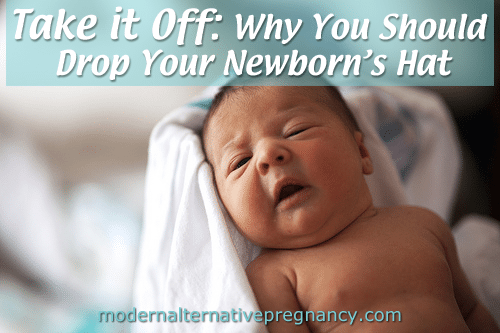
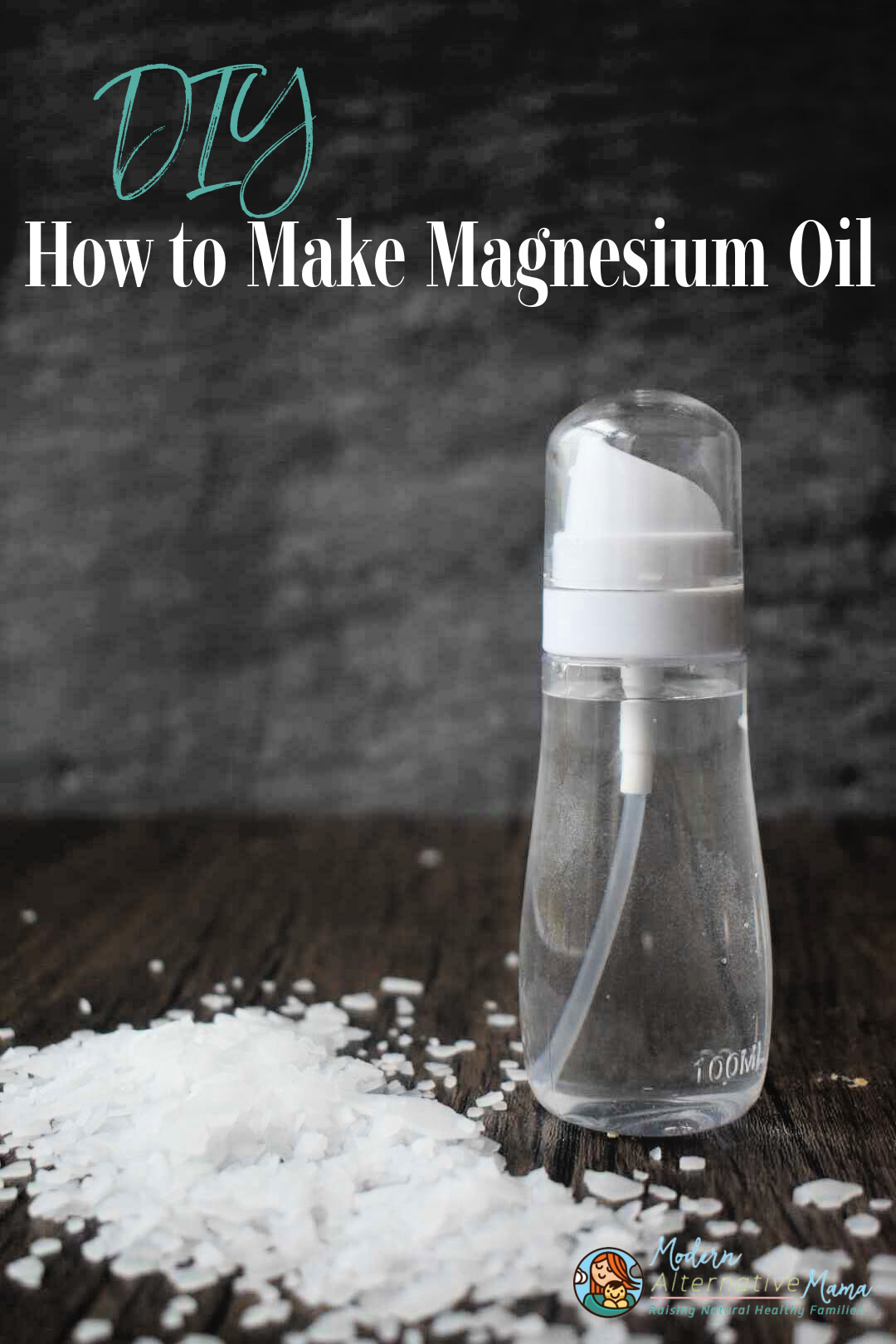

Amy, can you link me to the study?
“I also discovered a more recent study which concluded that mothers with diabetes could safely continue their pregnancies even beyond 40 weeks gestation as long as fetal monitoring was reassuring.”
thanks!
Do you have any additional information about Non-stress tests? I also have Type 1 diabetes, and what they are recommending seems excessive? I have already gotten some info from ACOG from my doctor, but it didnt cover that area of testing. Thanks!
[…] the natural birth that I desired to have and felt was best for myself and my baby. I did it! I had stood my ground, found a respectful care provider, and demanded evidence-based and individualized care. Despite […]